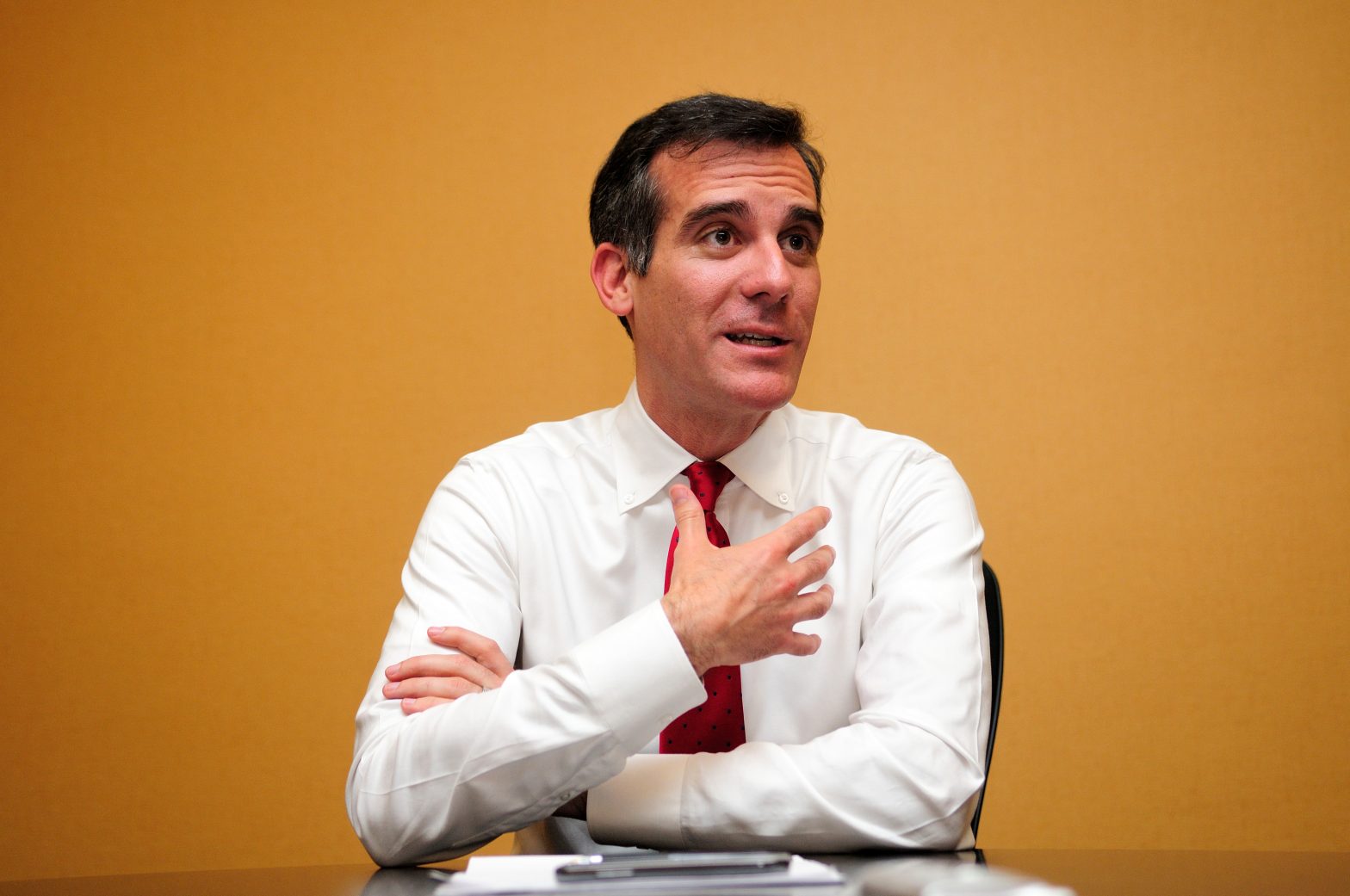
Photo: STORY SLUG: Eric Garcetti
Interview: Eric Garcetti, Mayor of Los Angeles
04 December 2015
by Jonathan Andrews
Jonathan Andrews spoke to Eric Garcetti, Mayor of Los Angeles, during the Local Leaders Climate Summit held in Paris City Hall alongside the COP21 climate talks.
This is the first time cities have had such a large and united front at the COP climate talks, what impact will today’s summit have?
I think the jury is in and people realise that without cities nations can’t move. We showed this in September [at the US-China Climate Leaders Summit] when we had a dozen US mayors and a dozen Chinese mayors moving toward a new partnership and moving [their respective] presidents forward. Forty-two percent of carbon emissions come from American and Chinese cities, so while we love the national leadership, and they are the ones that usually set the bar, it is up to cities to build the ladder to reach that bar.
What came out of the US-China Climate Leaders Summit and what are the steps for the next one?
It was extraordinary. There were city-to-city agreements and there were general agreements to measure and use methodologies to measure carbon emissions. We had announcements from Guangzhou and Beijing that they were going to cap their greenhouse gas emissions 10 years earlier than the national goal of 2030. It made history and we shared best practices–whether it be electric vehicles, transportation, green buildings or how we produce electricity. There was very specific work. We’ve gone past the talking and are now onto the actual doing.
LA has the largest electric vehicle fleet in any US city, what advice would you give to other mayors trying to increase electric vehicle use?
It makes financial sense to adopt electric vehicles, it makes climate sense and it makes great city sense. When you think about the loudest noises in a city, it’s normally a trash truck or a bus–both of which we are testing right now in electric form. When you look at the ability to reduce emissions–that is clear.
A lot of people don’t realise the low maintenance costs of electric vehicles. An internal combustion engine has 20,000 moving parts which you don’t have in an electric motor. I’ve personally driven an electric car since 1997, one of the very first the EV1 that GM made, and now we have police officers that are driving Teslas and BMW i3s. Even though they sound like expensive cars, we look at the maintenance over a two year period being cheaper.
LA has cut emissions by 20 percent from 1990 levels, was this mainly achieved by changing emission laws on motor vehicles?
Part of it is but the biggest component is that we control the largest municipal electricity utility in the US, so we’ve been greening our grid. We used to have 60 percent of electricity produced by coal, now we are down to 40 percent, and we have made a commitment to be off of coal by 2025, completely–the first city to dramatically reduce that to zero. It’s also been about how we are changing transportation and mandating green buildings, firstly for our government buildings over 12 years ago, and shortly after for private buildings to have stricter green standards.
Do you think it will be at this COP where an agreement will be reached?
It’s inevitable; we are past the tipping point. I think the agreement and the commitments will be there and I’m optimistic that countries like India will step up and rightfully challenge people on how we finance this. If you look at the difference between this COP and Copenhagen [COP15] with a country like China, they are leading now. There is no climate denial left, it’s just a question of how.











